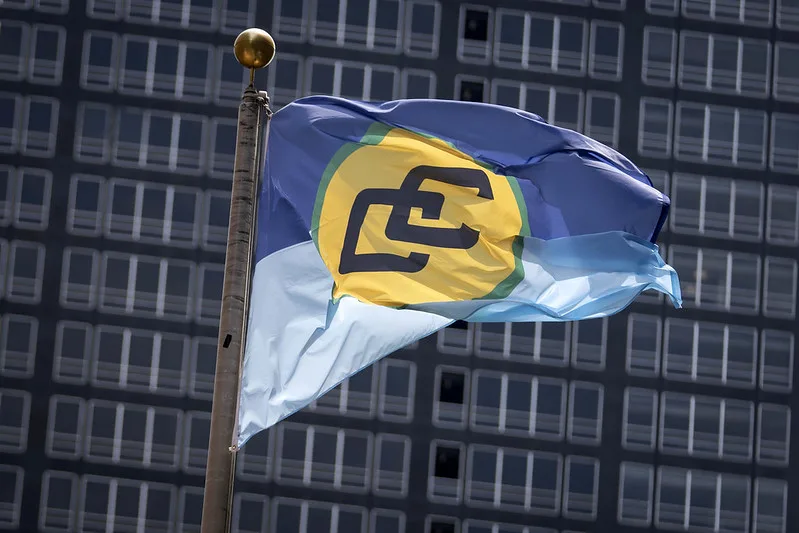
When it comes to highly controversial issues that could affect the economic prosperity of The Bahamas, successive governments have opted for the measured and conservative approach, being well aware that tourism and international business are key to economic survival of that mini archipelago off Florida.
But in recent months, the cabinet of Prime Minister Phillip Davis has moved to take a more strident stance on some important issues, including sending security personnel to strife-torn Haiti and now demanding that Europe complies with demands from the Caribbean for compensation for the Atlantic slave trade.
Davis was a keynote speaker at a sustainable goals conference in The Bahamas in the past week when he went into detail about the region’s position regarding reparations from former European slave trading nations. He told the audience that demands for reparations are regarded as the “boogeyman” at climate change negotiations, but the region plans to press ahead regardless.
“I can tell you that we are committed to reparations, not just for the transatlantic slave issue. In fact, we recommitted ourselves at our last heads meeting [of Caricom] last week in Trinidad. There was a question of reparations. We had last year written to the United Kingdom government, to the Netherlands government, to the Portugal government stating our case in respect to reparations, insofar as the slave trade is concerned.”
Regional leaders had briefly discussed the issue at their three-day meeting earlier this month, but they were also bogged down with efforts to find a solution to Haiti and to get free movement of Caribbean nationals of all categories of persons.
Still, Davis argued that there has been some amount of progress in recent months in terms of getting Europe, commercial entities, and religious organizations to acknowledge their tragic and brutal role in the slave trade, something he appears to regard as a positive beginning of an engagement.
“We have now the apologies of the Anglican church, the Anglican Communion in England. They did their study that’s been published, recognized their role in it. Some families, wealthy families in England have now taken up the cause to assist in promoting reparations.”
The region has also engaged King Charles in the discussions.
“They were sympathetic to the thought. The king has kindly considered to facilitating scholarships for our region and, in particular, The Bahamas for studying at any of the major universities, Cambridge, Oxford. We’re talking about that. Also, he has commissioned a study to determine the role they would’ve played as a monarch in this whole issue.”
The PM’s remarks come about six months after outgoing Dutch Prime Minister Mark Rutte formally apologized for the role of The Netherlands in the slave trade, saying the nation was willing to begin formal engagements with the Caribbean and other affected nations in the near future. Reacting to the apology in late December, the umbrella Caribbean Reparations Commission CRC) wasted no time in identifying The Dutch as the pioneers of slavery, being among the most brutal and the one which perhaps had benefited the most commercially.
At the beginning of July, Dutch King Willem-Alexander also apologized. “I stand before you as king and a member of the government and apologize to you personally. I feel this deeply in my heart and soul. Of all the ways in which a person can be robbed of their freedom, slavery is surely the most painful. The most degrading. The most inhuman.”
The bloc of 15 nations has long asked Europe for a formal summit on slavery and reparations, but authorities say the Europeans have made no effort to convene such a conference. In the meantime, however, Caricom has hired a British firm, which had won millions for Kenyan tribesmen who were slaughtered by British soldiers during the colonial era, to represent them. Initial reports are that the regional case is very strong.
Support our Racial Equity Journalism
Amsterdam News is renowned for its reporting of the news of the day from a Black perspective for 113 years. Donors who choose to give monthly or annually will receive Amsterdam News’ Weekly E-Edition and acclaimed free weekday newsletter Editorially Black delivered by email.





